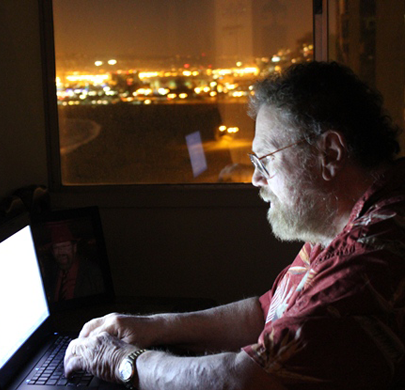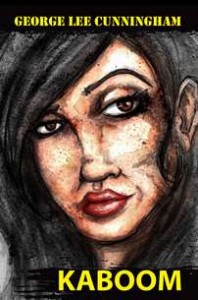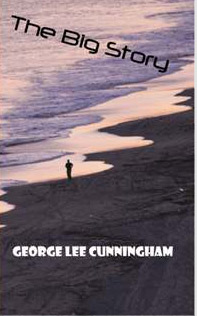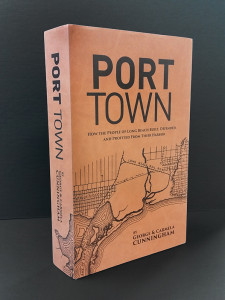ARCHIVED POSTS
-
March 27, 2017
Lyrics, Poetry and Prose VI
A place to share some words of beauty, inspiration, and fun. This week we feature some well-known verses about smoking cigarettes – which nowadays is no longer politically correct. Click on the name of the piece to get a video or more information. You have some favorites? Please share…
Smoke! Smoke! Smoke! that cigarette
Puff! Puff! Puff!
And if you puff yourself to death,
Tell Saint Peter at the golden gate,
That you hate to make him wait,
But you got to have another cigarette.– Smoke Smoke Smoke that Cigarette Singer: Phil Harris, Writers: Tex Williams, Merle Travis
Here we are out of cigarettes
Holding hands and yawning
Look how late it gets
Two sleepy people by dawn’s early light
And too much in love to say goodnight– Two Sleepy People Singer: Dean Martin; Writers: Hoagy Carmichael, Frank Loesser
Two cigarettes in an ashtray
My love and I, in a small cafe
Then a stranger came along
And everything went wrong
Now there’s three cigarettes in the ashtray– Three Cigarettes in an Ashtray Singer: Patsy Cline; Writers: Eddie Miller, W Stevenson, W S Stevenson
-
March 21, 2017
As a Rule – I Don’t Like Rules
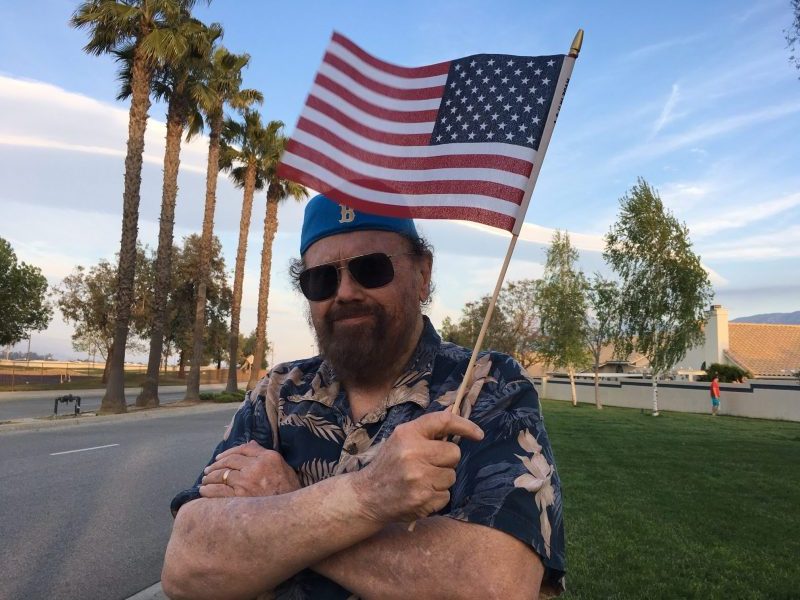
LIVE FREE OR MOVE
I hate rules. I understand why there are rules, I understand that without some kind of rules there would be social chaos. I understand that if we want civilization to function, we have to have rules.
But none of that means I have to like them.
Do you know who does like rules? Canadians, that’s who. And the Swedes. The Swedes like rules even more than the Canadians. I know what you’re thinking. Canada and Sweden are always being held up as countries that have it all together – much more advanced then we are here in the United States of America. Baloney.
You’re probably also thinking, you can’t just take a whole population, millions of people, and stigmatize them with a board brush. I admit that you’re right. There are some Canadians and some Swedes who hate rules as much as I do.
Those folks need to get the heck out of Canada and Sweden and move to the U.S., buy themselves some guns, start cheating on their taxes, and driving over the speed limit. Welcome to America.
I once worked with a Canadian who had migrated over the border and got a job in the United States. He believed that the rules were the rules. He said if he was driving someplace in the middle of the night with no traffic to be seen, and he came to a traffic light that was red, he would stop and wait for it to turn green, even if he was 100 percent certain there were no cops in the area. Why? Because it was the rule.
That’s just crazy. I remember a story out of Omaha, where a motorist complained to cops that he was sitting at a traffic light late at night when a couple of guys on motorcycles drove up, took out chains and beat on his car and broke out his windows. Why didn’t he just drive away? Because, he explained to the cops, the light was red.
A guy like that should move to Canada and maybe even Sweden if he doesn’t mind the high taxes.
The crazy thing about Sweden is that these guys used to be Vikings – warriors and raiders, who killed, looted, ransacked and ravaged. How they got to be a society of tax-paying, rule-following, politically correct yahoos is anybody’s guess.
Now, the closest I’ve ever been to Sweden is watching episodes of Wallander on soon-to-be-defunct PBS. The main character, Inspector Kurt Wallander, is a sensitive, soul-searching detective who runs around solving crimes and agonizing over just about everything that goes wrong in the world. The scenery is spectacular, the main character, kind of pathetic.
I ended up wanting to slap his face and tell him that if he wants to be a cop, he has to toughen up and start acting like one. Start shooting people who need to be shot, beating up people who need to be beaten, and making love to beautiful women without feeling guilty about it.
Now you’ve got a show.
– George Lee Cunningham
Do you have a dissenting opinion or any opinion at all on the subject? Contact me at george@georgeleecunningham.com and let me know. Meanwhile, you can always subscribe and get an email reminder of blog postings. Your name will not be shared and you may cancel at any time.
-
The Wasteland Spreads
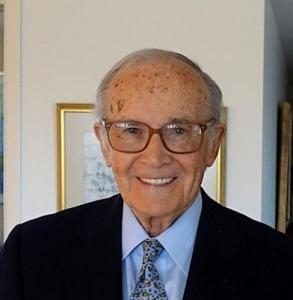
NEWTON NORMAN MINOW
“When television is good, nothing — not the theater, not the magazines or newspapers — nothing is better. But when television is bad, nothing is worse. I invite each of you to sit down in front of your television set when your station goes on the air and stay there for a day without a book, without a magazine, without a newspaper, without a profit and loss sheet or a rating book to distract you. Keep your eyes glued to that set until the station signs off. I can assure you that what you will observe is a vast wasteland.”
On May 9, 1961, when Federal Communications Commission Chairman Newton Norman Minow said that in a speech to the National Association of Broadcasters, it made a lot of people angry. Because when you criticize what people come home, sit on the couch, and enjoy every night, you’re really criticizing them. In truth, Minow was an elitist, who was saying to the great unwashed masses, if you enjoy this, it just proves how stupid you are.
Kind of like what Hillary Clinton said to the deplorables.
People were not happy with Minow over that speech. Author Ayn Rand criticized Minow for using his government position in an attempt to censor and influence what people watch. And the producers of Gilligan’s Island named the boat that left on a three-hour tour and never returned the S.S. Minnow in a sarcastic tribute to the man. Despite all the controversy over his speech, Minow’s description of a “vast wasteland” became a term that is still remembered more than 55 years later. And since that time the “wasteland” has grown even bigger.
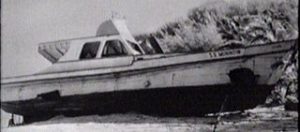
S.S. MINNOW
I would say that if Minow weren’t alive today, he would be spinning in his grave, but the truth is, he is still alive – 91-years-old – and still practicing law. And half-a-century later, the wasteland is bigger than ever.
Minow was a politically savvy political operative before he became FCC chairman. He worked on both unsuccessful presidential campaigns of Illinois Governor Adlai Stevenson in 1952 and 1956, then later on the successful 1960 campaign to elect President John. F. Kennedy president. Kennedy appointed him to lead the FCC.
Minow also backed Barrack Obama when he ran for president in 2008. In fact, it was Minow who hired Obama back in 1988 to work as a summer associate at Minow’s firm, Sidley Austin LLP. And that’s where Obama met his future wife, Michelle Robinson.
I think Minow was right about television. It does cater to the lowest-common-denominator. And the more it does so, the lower the lowest common denominator gets. Now you have shows that feature people of all races and backgrounds, behaving badly and becoming semi-famous for it. And as the lowest common denominator sinks ever lower, society in general follows it down.
We live in mean-spirited times, and I do give TV credit for much of that.
On the other hand, you always have people like Minow going around, telling other people what they should and should not like. What they should read, what they should watch, and how they should feel about things. That’s fine for a private citizen, but when the government starts deciding what people should like and not like, it is overstepping its bounds.
I do think Minow was right about television. But I also think he probably should have just minded his own darn business.
— George Lee Cunningham
-
Lyrics, Poetry and Prose V
A place to share some words of beauty, inspiration, and fun. This week we are sharing some of our favorite versions of well-known songs about love and booze. Click on the name of the piece to get a video or more information. You have some favorites? Please share…
The seat of my pants is slick from my barstool, And my hand’s in the shape of a glass
My eyes look like a road-map of Georgia, And it’s a shame I’ve lost my class
One broken heart can do strange things. To a fellow who can’t take pain
But in this hundred proof condition, I’m in no position to take her back again– Sorrow on the Rocks artist Porter Wagoner
Scotch and soda, mud in your eye,
Baby do I feel high?
Oh me, oh my, Do I feel high?
Dry martini, Jigger of gin,
Oh, what a spell you’ve got me in,
Oh my, Do I feel High– Scotch and Soda artists The Kingston Trio
But here I am again mixing misery and gin
Sitting with all my friends and talking to myself.
I look like I’m having a good time but any fool can tell
That this honky-tonk heaven really makes you feel, like hell– Misery and Gin Singer Merle Haggard, Writers John Robert Durrill, Snuff Garrett
-
March 14, 2017
WALKING WITH GHOSTS: PART TWO

ALL IT NEEDS IS A LITTLE TENDER LOVING CARE
There are ghosts along the backroads of America – the two-lane blacktops that used to be major highways until they were replaced by today’s broad and busy Interstate speedways. Some of the towns struggle on – gas stations and mini-marts, a Dairy Queen and a coffee shop, gravel parking lots littered with cigarette butts and gum wrappers. But many of the homes along the highway stand empty, year-by-year falling apart in slow motion, the porches sagging and the windows broken out.
You see them and you wonder what the story is. Were they once happy places, full of laughter and love, rural outposts of a kinder and gentler time? That’s what I like to think. But just as likely they were houses of dysfunction, occupied by angry and bitter people, stuck in the backwoods of society, too afraid of the unknown to join the migration of their friends and families to the city. And when they died or finally had to move on, the house they left behind slowly rotted away in place.
There is a mystery and a story behind every such place.
I find myself fascinated by these rural ruins, drawn to them both for their isolation from the main stream and by the lonely and sad mystery of their rise and their fall. Nobody builds a house anticipating that it will one day fall into ruin and be a rotting and weed-infested husk. And I like the vast emptiness surrounding many such structures, often miles of desert or open fields, hills in the distance, mountains behind the hills, the sky above and the gravel and dirt below.
It is not a fascination shared by my spouse.
“You know,” I say to her, one day driving through the desert, “we probably could get one of these old houses dirt cheap, fix it up, prop up the roof, new planking for the front porch, and live out here under the open sky.”
Silence.
There are times that I know better, that I can feel the tension in the way she sits and see it in her face. She is not amused by the idea, mostly because she knows that even though it’s just talk, part of me wouldn’t mind doing just that.
I continue undaunted.
“You wake up in the morning, you walk out to the front porch, and you can see for miles. No neighbors crowding in on every side, no horns honking or freeway noise, just birds singing and the wind blowing across the plain.”
Her jaws clamped tight. Eyes locked on the road ahead. Silence.
“So what do you think, honey?” I ask, knowing exactly what she thinks, but for some odd reason still wanting to stir things up, to get a reaction. By this time, the silence is killing me. She could say, well I disagree. She could say, the desert is lovely this time of year, but I don’t think I would like to live here in the summer. She could even just tell me to go straight to H-E-double hockey sticks.
But the silence is a killer, and she knows it.
“Honey,” I finally say. “Do you want to talk about it?”
“Go ahead,” she snaps back. “You want to live out here in the middle of nowhere, go ahead. But you’re going to be greeting the morning sky and the birds and the flies and the rattlesnakes by yourself, because the dog and I are going to be living someplace else.”
“I didn’t say we should move out here, I just was thinking what if we did?”
“Good, I think you should,” she says. “You only have to drive 35 or 40 miles to get a loaf of bread and a quart of milk, and then you’re going to pay about three times the price that you would at the supermarket in the city. But hey, you love the wide open spaces, so that’s not a problem.
“Just don’t expect the dog and me to live out here with you…”
“Maybe the dog would like it out here,” I joke, trying to relieve some of the tension.
“The dog stays with me.”
“OK honey,” I finally relent. “I think we should cross this off our list.”
Silence for several more miles.
“You’re not funny,” she finally says. “You think you’re being funny, but you’re not.”
“No Ma’am,” I say. “Not funny.”
And now I know – another mystery solved. Why there are houses abandoned out in the middle of nowhere. Because wives don’t like living out in the middle of nowhere.
And men don’t like cooking for themselves.
– George Lee Cunningham
Do you have a dissenting opinion or any opinion at all on the subject? Contact me at george@georgeleecunningham.com and let me know. Meanwhile, you can always subscribe and get an email reminder of blog postings. Your name will not be shared and you may cancel at any time.

